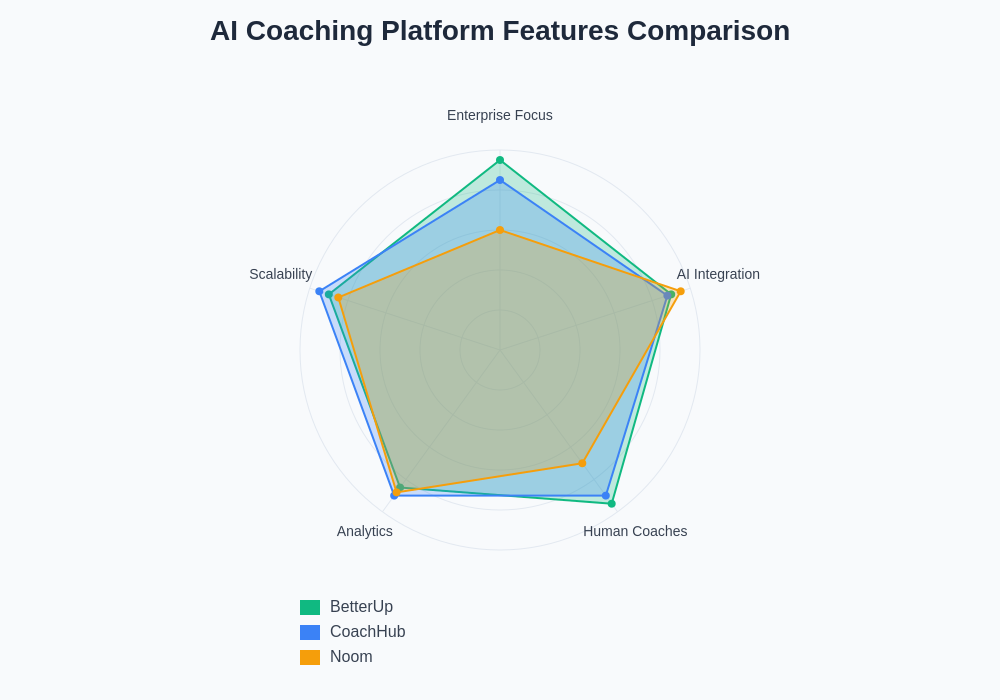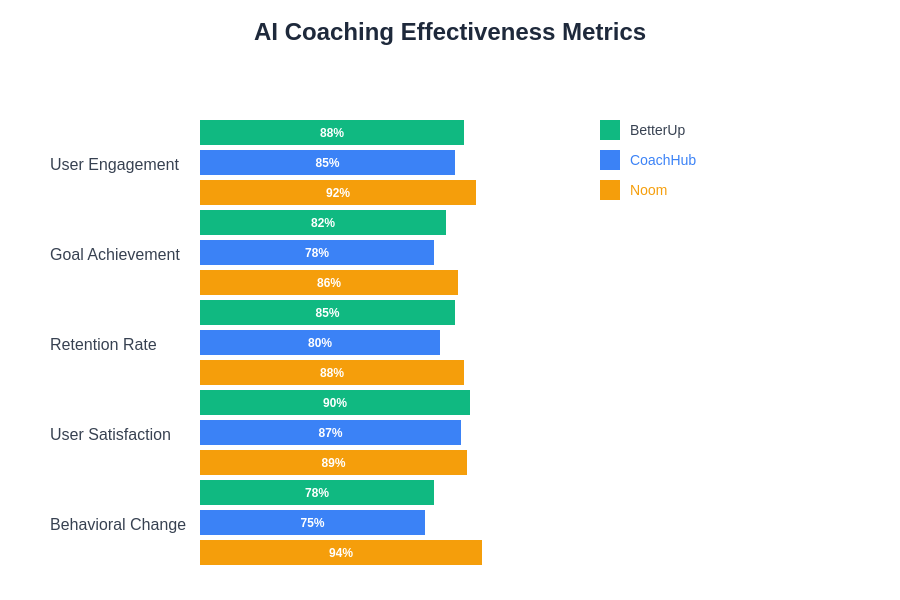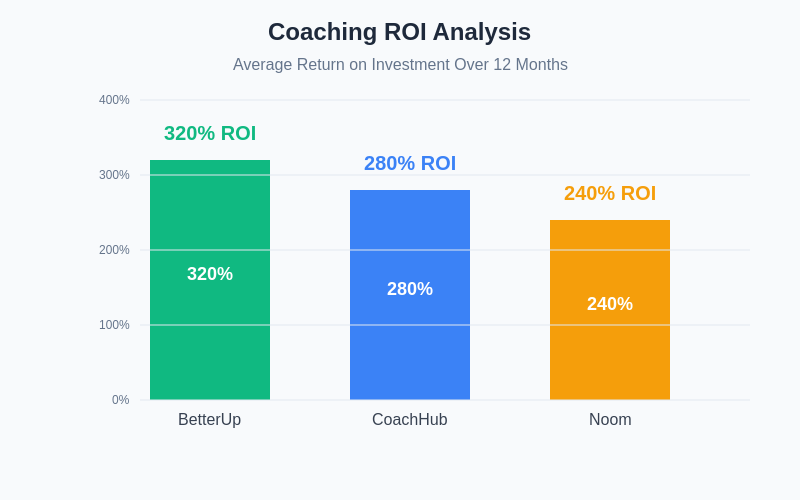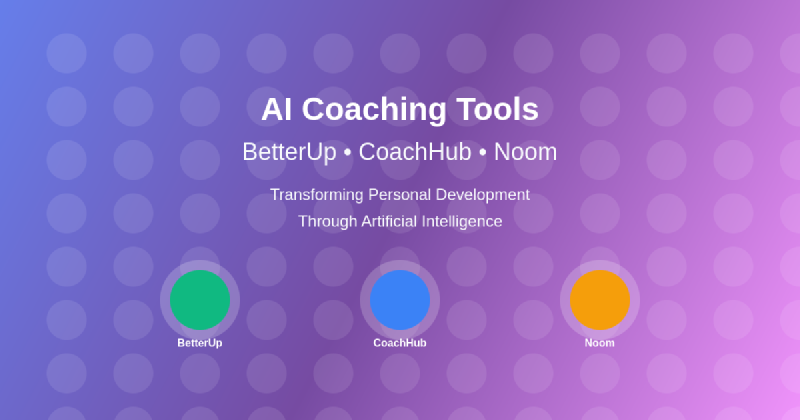The digital transformation of personal development has reached unprecedented heights with the emergence of sophisticated AI-powered coaching platforms that are revolutionizing how individuals approach self-improvement, career advancement, and wellness goals. These innovative tools combine the accessibility of technology with the personalized guidance traditionally reserved for one-on-one human coaching relationships, creating scalable solutions that deliver meaningful behavioral change and measurable outcomes across diverse populations and use cases.
Explore the latest AI coaching trends to discover cutting-edge developments in personalized development and wellness technology. The convergence of artificial intelligence, behavioral science, and coaching methodologies represents a paradigm shift that is democratizing access to professional guidance while maintaining the depth and effectiveness of traditional coaching approaches.
The Evolution of Digital Coaching Platforms
The landscape of personal development coaching has undergone a fundamental transformation through the integration of artificial intelligence technologies that can analyze behavioral patterns, provide personalized recommendations, and adapt coaching strategies based on individual progress and preferences. This evolution has created a new category of digital wellness tools that bridge the gap between generic self-help content and expensive human coaching services, offering personalized guidance at scale while maintaining the human touch that makes coaching effective.
Modern AI coaching platforms leverage sophisticated algorithms to understand user behavior, identify patterns that indicate progress or obstacles, and deliver timely interventions that maximize the likelihood of achieving desired outcomes. These systems can process vast amounts of data about user interactions, preferences, and progress to create highly personalized coaching experiences that evolve dynamically based on changing needs and circumstances.
BetterUp: Enterprise-Grade AI Coaching Excellence
BetterUp has established itself as a leading force in the corporate coaching space by combining human expertise with advanced AI capabilities to deliver personalized professional development experiences at enterprise scale. The platform’s sophisticated approach to coaching integrates behavioral science research with machine learning algorithms to create coaching journeys that are both scientifically grounded and highly personalized to individual needs and organizational contexts.
The platform’s AI infrastructure analyzes communication patterns, goal progression, and engagement metrics to optimize coaching recommendations and identify opportunities for accelerated development. BetterUp’s integration of human coaches with AI-powered insights creates a hybrid model that leverages the best aspects of both human intuition and algorithmic precision to deliver consistently high-quality coaching experiences.
Transform your development journey with Claude AI to experience advanced reasoning capabilities that enhance personal growth and professional development through intelligent conversation and insight generation. The combination of professional coaching platforms with AI assistants creates a comprehensive ecosystem for continuous improvement and skill development.
BetterUp’s approach to data-driven coaching excellence involves continuous measurement of progress indicators, sentiment analysis of coaching conversations, and predictive modeling to identify potential obstacles before they impact goal achievement. This proactive approach to coaching intervention has demonstrated significant improvements in employee engagement, leadership effectiveness, and overall job satisfaction across diverse organizational contexts.
The platform’s emphasis on measurable outcomes extends beyond individual progress tracking to include organizational impact metrics that demonstrate return on investment for coaching programs. BetterUp’s AI systems can correlate coaching activities with business outcomes such as employee retention, promotion rates, and performance improvements, providing valuable insights for human resources departments and organizational leaders.
CoachHub: Scalable AI-Enhanced Coaching Solutions
CoachHub has distinguished itself in the digital coaching marketplace through its innovative blend of human expertise and artificial intelligence that creates scalable coaching solutions for organizations of all sizes. The platform’s AI-driven matching system uses sophisticated algorithms to pair individuals with coaches whose expertise, communication style, and experience align optimally with specific development goals and personality characteristics.
The platform’s technological infrastructure incorporates natural language processing capabilities that analyze coaching conversations to identify themes, track progress toward goals, and provide insights that enhance the effectiveness of coaching relationships. CoachHub’s AI systems can detect subtle patterns in communication that indicate engagement levels, satisfaction with coaching progress, and potential areas for intervention or adjustment in coaching approaches.
CoachHub’s commitment to continuous improvement through AI-powered analytics enables the platform to refine its matching algorithms, optimize coaching methodologies, and identify best practices that can be scaled across its global network of professional coaches. This data-driven approach to coaching excellence has resulted in consistently high satisfaction rates and measurable improvements in participant outcomes across diverse industries and organizational contexts.
The platform’s global reach and multilingual capabilities are enhanced through AI-powered translation and cultural adaptation systems that ensure coaching content and methodologies are appropriately tailored to different cultural contexts and language preferences. This international scalability has made CoachHub an attractive option for multinational organizations seeking consistent coaching quality across diverse geographical regions.

The comprehensive feature sets offered by leading AI coaching platforms demonstrate the sophistication and depth of modern digital coaching solutions. Each platform brings unique strengths and capabilities that cater to different organizational needs and individual preferences, creating a competitive landscape that drives continuous innovation and improvement.
Noom: Behavioral Psychology Meets AI Innovation
Noom has revolutionized the wellness coaching space by applying principles of behavioral psychology through sophisticated AI algorithms that create personalized weight management and lifestyle change programs. The platform’s approach to coaching combines cognitive behavioral therapy techniques with gamification elements and social support mechanisms to create engaging experiences that promote sustainable behavioral change.
The platform’s AI engine analyzes user behavior patterns, food choices, exercise habits, and engagement levels to create dynamically adjusting coaching programs that evolve based on individual progress and challenges. Noom’s psychological approach to coaching recognizes that lasting change requires addressing underlying thought patterns and beliefs rather than simply providing information or tracking metrics.
Noom’s innovative use of color psychology in food categorization, combined with AI-powered meal planning and nutrition coaching, creates an intuitive system that helps users develop healthier relationships with food and exercise. The platform’s coaching methodology emphasizes education and understanding rather than restriction, leading to more sustainable long-term outcomes compared to traditional diet and fitness approaches.
Enhance your research capabilities with Perplexity AI to explore the latest developments in behavioral psychology and AI-powered wellness solutions that are transforming how individuals approach health and lifestyle changes. The integration of multiple AI tools creates comprehensive support systems for personal development and wellness achievement.
The platform’s success in creating lasting behavioral change has been demonstrated through extensive research and clinical studies that show significantly higher retention rates and sustainable weight loss outcomes compared to traditional diet programs. Noom’s emphasis on psychological coaching combined with AI-powered personalization has created a new standard for digital wellness interventions.
Comparative Analysis of AI Coaching Methodologies
The diverse approaches taken by leading AI coaching platforms reflect different philosophical and technological perspectives on how artificial intelligence can most effectively support human development and behavioral change. BetterUp’s focus on professional development leverages AI to enhance human coaching relationships, while CoachHub emphasizes scalable matching and analytics, and Noom applies AI to create psychologically informed behavioral interventions.
These different methodological approaches highlight the versatility of AI technologies in supporting various types of coaching objectives, from career advancement and leadership development to wellness and lifestyle transformation. The effectiveness of each approach depends significantly on the specific needs, preferences, and goals of individual users, as well as the organizational context in which coaching takes place.

The quantitative assessment of AI coaching platform effectiveness reveals significant variations in outcomes across different coaching domains and user populations. Understanding these metrics helps organizations and individuals make informed decisions about which coaching platforms best align with their specific objectives and success criteria.
The integration of AI technologies with human coaching expertise creates hybrid models that combine the scalability and consistency of algorithmic approaches with the empathy, intuition, and contextual understanding that human coaches provide. This combination has proven particularly effective in creating coaching experiences that are both highly personalized and consistently high-quality across large user populations.
Technology Infrastructure and AI Capabilities
The technological foundations underlying modern AI coaching platforms involve sophisticated machine learning systems, natural language processing capabilities, and predictive analytics that enable highly personalized coaching experiences. These systems must process vast amounts of user data while maintaining strict privacy and security standards, creating complex technical challenges that require innovative solutions.
BetterUp’s technological infrastructure emphasizes integration with enterprise systems and compliance with corporate security requirements, while CoachHub focuses on global scalability and multilingual support. Noom’s technology stack prioritizes real-time behavioral analysis and dynamic content personalization that can adapt quickly to changing user needs and circumstances.
The AI capabilities of these platforms continue to evolve rapidly as new machine learning techniques become available and as platforms accumulate larger datasets that enable more sophisticated pattern recognition and predictive modeling. This continuous technological advancement creates ongoing opportunities for improved coaching effectiveness and user engagement.
User Experience and Engagement Strategies
The design of user experiences in AI coaching platforms requires careful balance between technological sophistication and human-centered design principles that prioritize usability, engagement, and emotional connection. Successful platforms create intuitive interfaces that make advanced AI capabilities accessible to users regardless of their technological expertise or familiarity with coaching concepts.
Gamification elements, social features, and personalized content delivery are common strategies used by AI coaching platforms to maintain user engagement and motivation over extended coaching relationships. These features must be carefully designed to enhance rather than distract from core coaching objectives, requiring sophisticated understanding of user psychology and behavioral motivation.
The most successful AI coaching platforms create seamless experiences that feel natural and supportive rather than technological or artificial, despite the sophisticated AI systems operating behind the scenes. This requires careful attention to conversational design, content personalization, and interaction timing that feels organic and helpful rather than programmatic.
Privacy, Ethics, and Data Security Considerations
The collection and analysis of personal data required for effective AI coaching raises important questions about privacy protection, ethical use of information, and security of sensitive personal and professional development data. Leading platforms have implemented comprehensive privacy frameworks and security measures that protect user information while enabling the data analysis necessary for effective coaching.
Ethical considerations in AI coaching include ensuring algorithmic fairness, preventing bias in coaching recommendations, and maintaining transparency about how AI systems make decisions that affect user experiences. These considerations are particularly important in professional coaching contexts where AI recommendations might influence career decisions or organizational assessments.
The regulatory landscape surrounding AI-powered coaching continues to evolve as governments and industry organizations develop frameworks for responsible AI deployment in sensitive applications such as personal development and wellness coaching. Successful platforms proactively address these concerns through robust ethical guidelines and compliance measures.
Integration with Existing Systems and Workflows
The effectiveness of AI coaching platforms often depends on their ability to integrate seamlessly with existing organizational systems, personal productivity tools, and workflow management platforms that users already employ in their daily routines. This integration capability determines whether coaching becomes a natural part of ongoing development activities or remains an isolated additional task.
BetterUp’s enterprise focus has driven extensive integration capabilities with human resources information systems, performance management platforms, and learning management systems commonly used in corporate environments. CoachHub emphasizes integration with calendar systems, communication tools, and project management platforms that facilitate coaching scheduling and progress tracking.
Noom’s integration strategy focuses on health and fitness tracking devices, nutrition databases, and social networking features that create comprehensive ecosystems for lifestyle management and behavioral change. These integrations help users maintain consistent engagement with coaching recommendations across multiple touchpoints throughout their daily routines.
Measuring Success and Return on Investment
The measurement of coaching effectiveness requires sophisticated metrics that can capture both quantitative improvements and qualitative changes in user behavior, satisfaction, and goal achievement. AI coaching platforms have advantages in this area because they can continuously monitor user interactions, track progress indicators, and correlate coaching activities with desired outcomes.
BetterUp’s approach to ROI measurement includes organizational metrics such as employee retention, promotion rates, and performance improvements that can be directly attributed to coaching interventions. CoachHub focuses on engagement metrics, goal completion rates, and satisfaction scores that demonstrate coaching effectiveness across diverse user populations.
Noom’s success measurement emphasizes behavioral change indicators, health outcome improvements, and long-term retention rates that demonstrate sustainable lifestyle modifications rather than temporary improvements. This longitudinal approach to success measurement provides valuable insights into the lasting impact of AI-powered coaching interventions.

The comprehensive analysis of return on investment across different AI coaching platforms reveals significant variations in value creation mechanisms and outcome measurement methodologies. Understanding these differences helps stakeholders select coaching solutions that align with their specific success criteria and organizational objectives.
Future Trends and Technological Developments
The future of AI coaching platforms will likely involve even more sophisticated personalization capabilities, enhanced predictive analytics, and deeper integration with emerging technologies such as virtual reality, augmented reality, and Internet of Things devices. These technological advances will create new possibilities for immersive coaching experiences and real-time behavioral intervention.
The development of more advanced natural language processing and conversational AI capabilities will enable coaching platforms to conduct increasingly sophisticated dialogues that rival human coaching interactions in depth and nuance. This evolution will blur the lines between AI-powered and human coaching while maintaining the scalability advantages of technological solutions.
Integration with biometric monitoring, environmental sensors, and contextual awareness systems will enable coaching platforms to provide increasingly timely and relevant interventions based on real-time conditions and circumstances. This ambient intelligence approach to coaching represents a significant evolution beyond current interaction-based models.
Industry Impact and Market Evolution
The rapid growth of the AI coaching market has attracted significant investment and innovation that is driving continuous improvements in platform capabilities, user experiences, and coaching effectiveness. This competitive environment benefits users through improved features, lower costs, and more diverse options for different coaching needs and preferences.
The success of AI coaching platforms has also influenced traditional coaching industries, prompting human coaches to integrate technological tools and data-driven approaches into their practice. This convergence of human expertise and AI capabilities is creating new hybrid models that combine the best aspects of both approaches.
The democratization of coaching through AI-powered platforms has expanded access to professional development and wellness support for populations that previously lacked access to these services due to cost, geography, or availability constraints. This expansion represents a significant social impact that extends beyond commercial success metrics.
Implementation Strategies and Best Practices
Successful implementation of AI coaching platforms requires careful planning that considers organizational culture, user readiness, and integration requirements that will determine adoption rates and ultimate success. Organizations must balance technological capabilities with human factors that influence user acceptance and engagement.
Change management strategies for AI coaching implementation should address potential resistance to technological coaching approaches while highlighting the benefits and complementary nature of AI-enhanced human coaching relationships. This communication strategy is crucial for achieving high adoption rates and sustained engagement.
Training and support programs for both coaches and users help maximize the effectiveness of AI coaching platforms by ensuring that all participants understand how to leverage technological capabilities while maintaining focus on coaching objectives and relationship quality. This educational component is essential for realizing the full potential of AI-enhanced coaching programs.
Conclusion and Recommendations
The landscape of AI-powered coaching tools represents a transformative force in personal and professional development that offers unprecedented opportunities for scalable, personalized, and effective coaching interventions. The leading platforms each bring unique strengths and capabilities that serve different market segments and coaching objectives, creating a diverse ecosystem of solutions for various needs and preferences.
The selection of appropriate AI coaching platforms should be based on careful consideration of specific objectives, organizational requirements, user preferences, and integration capabilities rather than generic feature comparisons. The most successful implementations involve thoughtful matching of platform capabilities with actual coaching needs and realistic expectations about outcomes and timelines.
The future evolution of AI coaching platforms will likely involve continued convergence of human expertise and artificial intelligence capabilities that create increasingly sophisticated and effective coaching experiences. Organizations and individuals who embrace these technologies while maintaining focus on fundamental coaching principles will be best positioned to benefit from the ongoing innovation in this rapidly evolving field.
Disclaimer
This article is for informational purposes only and does not constitute professional coaching or therapeutic advice. The effectiveness of AI coaching platforms may vary based on individual circumstances, goals, and engagement levels. Readers should carefully evaluate their specific needs and consult with qualified professionals when making decisions about coaching or wellness programs. The platforms mentioned are subject to ongoing changes in features, pricing, and availability.
